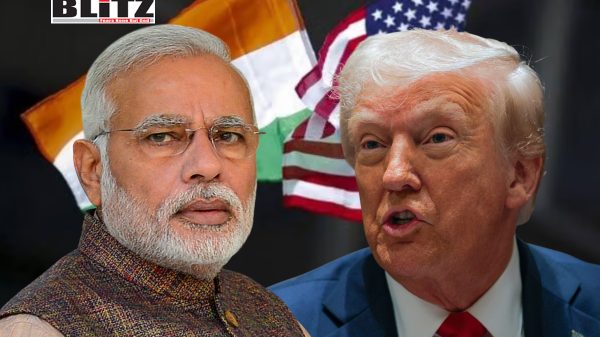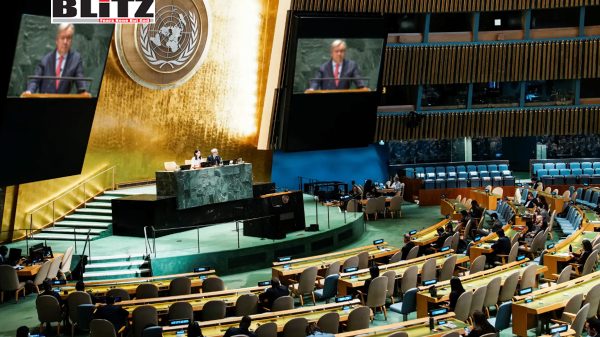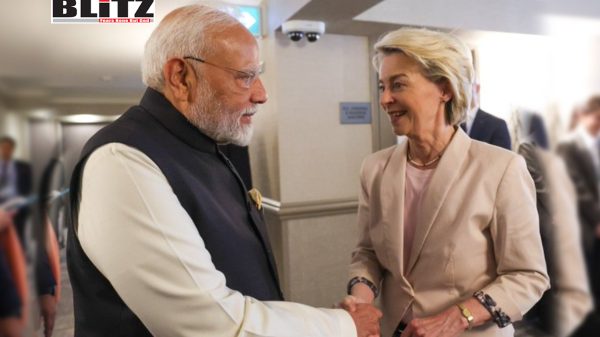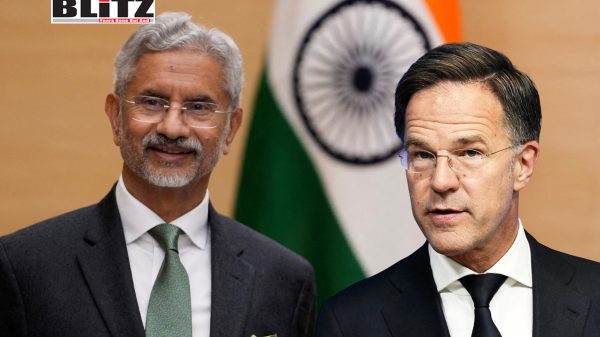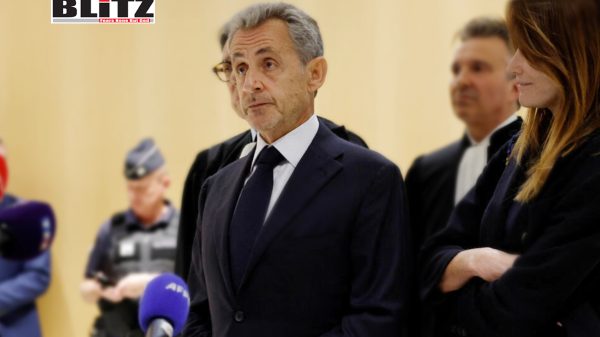Why the Jatiyo Party suddenly finds itself in the spotlight of Bangladesh’s political casino
- Update Time : Saturday, September 27, 2025
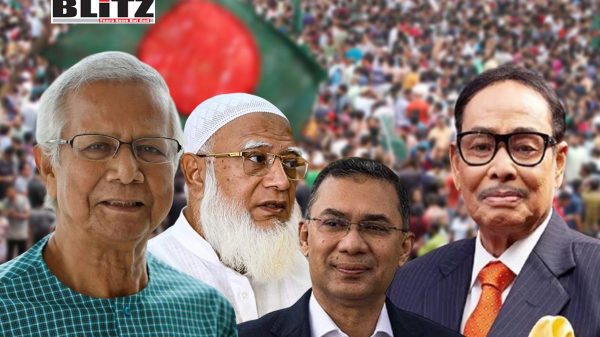
In Bangladeshi politics, parties rarely rise to prominence by accident. When a political formation like the Jatiyo Party (JaPa) – long dismissed as a marginal, opportunistic, or even redundant force – suddenly finds itself thrust into the national spotlight, it is worth asking: whose interests are being served? The answer, in my suspect, lies less in the party’s strength than in the desperation of those engineering Bangladesh’s political future from behind the scenes.
At the center of this crisis stands Muhammad Yunus, the Nobel laureate turned “caretaker administrator”. Yunus has made no secret of his distaste for genuine elections. For him, a credible, competitive election is not the culmination of the interim government’s work – it is its death sentence. Once an elected government assumes office, Yunus’s carefully constructed influence evaporates. His only option is to delay, distort, or engineer elections so that the “right” winners—those acceptable to his patrons abroad – emerge triumphant. In this theater, the Jatiyo Party is cast not as a protagonist, but as a prop.
The latest episode speaks volumes. The Chief Election Commissioner recently declared, almost in passing, that the Jatiyo Party’s electoral symbol – the plough – apparently has no rightful “owner.” One of Bangladesh’s oldest political parties, founded under the iron-fisted rule of General Hussain Muhammad Ershad, suddenly found its most basic identity questioned. To describe this as laughable would be generous; it is closer to sinister. Political parties are not start-ups whose trademarks can be disputed in court. Symbols are part of Bangladesh’s electoral DNA. To suggest otherwise is not incompetence. It is sabotage.
This is not the first-time electoral symbols have been weaponized. In the tumultuous politics of South Asia, control of a symbol often decides the fate of a party. In India, electoral symbol “two leaves” of the AIADMK or the “hand” of the Congress Party have been fiercely contested because they carry decades of voter recognition. Stripping a party of its symbol is tantamount to erasing its existence. That such a ploy is being considered in Dhaka suggests a deliberate effort to destabilize the Jatiyo Party at precisely the moment it might emerge as a kingmaker.
The comparison many Bangladeshis make is with last year’s maneuvers by Washington’s so-called “deep state.” The United States, under the guise of supporting democracy, has long pursued the politics of selective empowerment. By threatening sanctions, issuing moral lectures, or quietly blessing caretaker experiments, Washington has managed to keep Dhaka unsteady while keeping its preferred interlocutors relevant. Yunus, with his long-standing ties to American Democrat’s lobbyist, is a convenient instrument of this design.
But here lies the deeper problem: removing the Awami League from the electoral equation without allowing a natural democratic realignment risks producing outcomes Washington least desires. If the Awami League is sidelined, the arithmetic shifts dramatically. BNP’s vote base, estimated at 30–35 percent, cannot automatically guarantee victory. Much of that support bleeds into Islamist parties, whose 7–8 percent bloc remains solidly theirs. Jamaat-e-Islami, despite repression, retains disciplined organizational strength. But the true wildcard is the Jatiyo Party, whose base – hovering between 15 and 20 percent – suddenly becomes decisive.
Without the Awami League’s disciplined or solid voter bloc, a significant portion of its electorate could drift toward the Jatiyo Party as a pragmatic choice: less confrontational than BNP, more secular than Jamaat-e-Islami, and familiar to rural constituencies. This would catapult the party into contention, possibly delivering 45–55 percent of the vote. The BNP knows this. Jamaat knows this. Yunus knows this. Hence the sudden obsession with undermining the Jatiyo Party’s electoral symbol – “plough”.
Why such fear? Because Bangladesh’s political establishment has always been haunted by the ghost of General Ershad. For all his authoritarian excesses, Ershad mastered the art of compromise. He built patronage networks across the countryside, positioning his party as a fallback option whenever Awami League and BNP exhausted themselves in bitter feuds. The Jatiyo Party’s resilience is not accidental – it is structural. It survives because millions of Bangladeshis remain disenchanted with the binary choice between Awami authoritarianism and BNP chaos.
Yunus, for all his global prestige, lacks the instincts of a politician. His career was built on donor-driven development projects, not grassroots mobilization. He understands numbers on balance sheets, not the calculus of votes in rural polling stations. His Western patrons may indulge his fantasy of an “engineered election” where he emerges as president, but he cannot escape the hard truth: Bangladeshis do not take orders from foreign foundations. They vote. And when they vote, they vote with memory.
The lesson of history is blunt: attempts to manipulate electoral outcomes in Bangladesh usually end in disaster. In 1996, the military-backed caretaker experiment collapsed under the weight of public outrage, forcing fresh elections within months. In 2007–08, the army’s attempt to bypass the traditional parties produced a temporary lull, but the eventual elections restored the Awami League with a landslide. The more interim governments delay, the more explosive the eventual reckoning.
What Yunus is attempting is not novel. It echoes the hubris of countless technocrats who believe they can engineer politics as if it were a microfinance scheme. But political legitimacy cannot be micro-managed. It must be earned through the ballot box. Every time unelected actors try to preordain outcomes; they only reinforce the very polarization they claim to resolve.
The Yunus experiment is already fraying. By toying with the Jatiyo Party’s symbol, the interim regime has signaled both its weakness and its paranoia. The irony is striking: in seeking to undermine the Jatiyo Party, Yunus has only confirmed its importance. Symbols matter because they embody political memory. Stripping Jatiyo Party of the plough is an admission that, left to its own devices, the party might plough its way to power.
Bangladeshis deserve better than this charade. They deserve a real election in which all parties compete freely, where symbols are not weaponized, and where foreign patrons do not script the outcome. The interim government’s task should be simple: guarantee a credible vote, not tilt the scales. Anything less will deepen the suspicion that Bangladesh’s sovereignty is being bartered away in the name of “democracy promotion.”
The sudden prominence of the Jatiyo Party is not a quirk of fate but the product of structural political realities. It commands a loyal base, stands to benefit from Awami League’s exclusion, and represents a compromise alternative to BNP and Jamaat. That is precisely why Yunus and his backers are scrambling to undermine it. Yet history offers a warning: Bangladesh’s electorate has a way of punishing those who try to pre-empt its choices. If Yunus persists in this charade, his legacy will not be as the father of Bangladeshi democracy but as its undertaker.
Bangladesh is at a crossroads. Either it embraces the hard work of genuine democracy or it continues down the path of engineered elections and manufactured crises. In the end, the plough may prove stronger than the pen of technocrats and the pressure of foreign patrons. For a nation built on the promise of self-determination, that would be a fitting outcome. And if that happens – Jatiyo Party will emerge as the next ruling party in Bangladesh.


